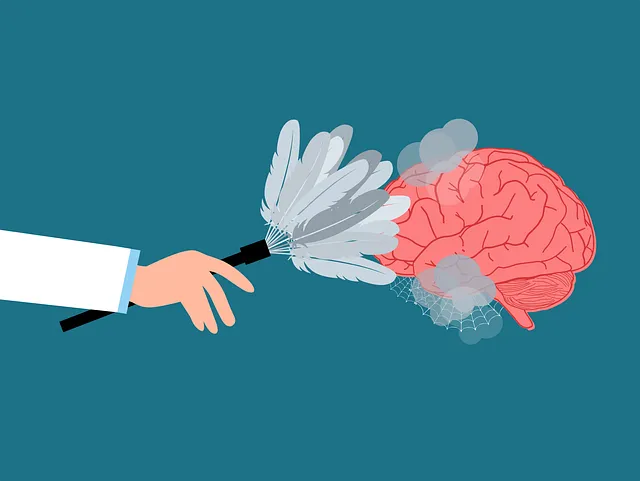Westminster and Kaiser, two institutions offering inpatient mental health services, differ in their approaches. While Westminster focuses on personalized, holistic care, building resilience and social skills, Kaiser employs a standardized treatment protocol for symptom stabilization. Both organizations prioritize cultural sensitivity, with programs catering to diverse patient populations. Cross-cultural training empowers healthcare providers to understand and respect unique cultural beliefs, values, and healing practices, ensuring inclusive mental healthcare that considers individual and communal perspectives on well-being.
Mental healthcare practices must embrace cultural sensitivity to provide effective, equitable treatment. This article explores this critical aspect, comparing approaches at renowned institutions like Westminster and Kaiser’s inpatient mental health facilities. We analyze their strategies, highlighting best practices that foster inclusive environments.
By examining these models, we aim to equip professionals with insights on navigating cultural nuances, ultimately improving patient outcomes in diverse clinical settings. Discover practical steps to enhance cultural sensitivity in your practice.
- Understanding Cultural Sensitivity in Mental Healthcare
- A Comparison: Westminster vs Kaiser Inpatient Mental Health Practices
- Strategies for Incorporating Cultural Sensitivity in Clinical Settings
Understanding Cultural Sensitivity in Mental Healthcare

In the realm of mental healthcare, cultural sensitivity is a cornerstone that bridges the gap between diverse patient populations and quality treatment. It involves recognizing and appreciating the unique cultural backgrounds, beliefs, and practices of individuals seeking support for their mental well-being. Cultural sensitivity requires mental health professionals to understand and respect these differences, ensuring that care is tailored to meet each patient’s specific needs. This approach is especially relevant in institutions like Kaiser, with its inpatient mental health services, where a diverse patient base may include those from various ethnic, cultural, and socioeconomic backgrounds, such as the communities serviced by Westminster.
Promoting cultural sensitivity in mental healthcare extends beyond mere awareness; it drives the design of Mental Health Education Programs that cater to diverse audiences. These programs aim to foster positive thinking and coping mechanisms while considering cultural nuances. Moreover, Community Outreach Program Implementations play a vital role in reaching underserved populations, ensuring that mental health services are accessible, culturally competent, and inclusive. By integrating these strategies, mental healthcare providers can create an environment where every individual feels understood, valued, and supported on their journey towards healing and recovery.
A Comparison: Westminster vs Kaiser Inpatient Mental Health Practices

When comparing Westminster’s inpatient mental health practices to those of Kaiser, several key differences emerge. While both organizations aim to provide quality care, their approaches vary significantly. Westminster often emphasizes a more individualized, holistic approach, focusing on building resilience and enhancing social skills through tailored programs. This includes structured therapy sessions, group activities promoting stress management, and workshops designed to empower patients with practical tools for coping.
In contrast, Kaiser’s inpatient program leans towards a more standardized model, where treatment plans are largely predetermined based on established protocols. While effective for many, this approach may not account for the unique cultural backgrounds and personal experiences of each patient. Unlike Westminster’s emphasis on resilience building and social skills training, Kaiser prioritizes acute care and symptom stabilization, leaving some aspects of holistic well-being potentially underserved.
Strategies for Incorporating Cultural Sensitivity in Clinical Settings

Incorporating cultural sensitivity into clinical settings is a multifaceted process that requires intentional strategies to ensure effective mental healthcare for diverse populations. One key approach is empowering healthcare providers with cross-cultural training, enabling them to understand and appreciate the unique beliefs, values, and practices of different communities. This includes learning about various emotional healing processes across cultures, which can significantly impact how individuals express and cope with mental health issues. For instance, some cultures may prioritize community involvement and collective healing, while others focus on individual resilience building through personal reflection.
Westminster and Kaiser’s inpatient mental health services, for example, have recognized the importance of cultural sensitivity in their practices. They implement community outreach program implementations tailored to address the specific needs of diverse patient populations. By fostering strong community ties and leveraging culturally competent staff, these organizations promote inclusive care that respects individual and communal perspectives on well-being. This holistic approach not only enhances access to mental health services but also strengthens the resilience building capabilities within affected communities.
In exploring cultural sensitivity in mental healthcare, this article has highlighted the significant differences between Westminster and Kaiser’s inpatient practices. The case study revealed that while both organizations strive for culturally competent care, Kaiser demonstrates a more comprehensive approach through structured programs and diverse staff training. By learning from such models, mental health professionals can enhance patient outcomes, bridge cultural gaps, and provide more inclusive services, ensuring every individual receives respectful and effective treatment tailored to their unique background. Incorporating these strategies is essential in meeting the diverse needs of today’s multicultural society.





